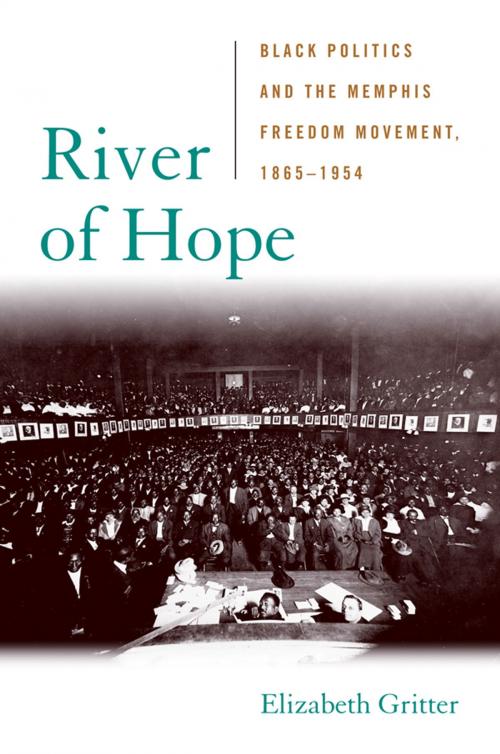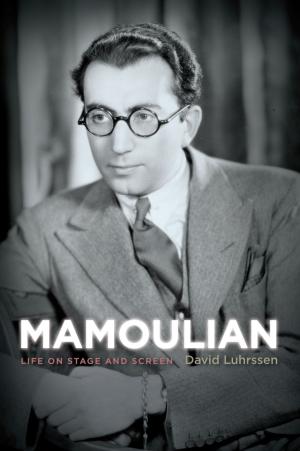River of Hope
Black Politics and the Memphis Freedom Movement, 1865--1954
Nonfiction, Social & Cultural Studies, Political Science, Politics, Civil Rights, Social Science, Cultural Studies, African-American Studies, History, Americas, United States| Author: | Elizabeth Gritter | ISBN: | 9780813144740 |
| Publisher: | The University Press of Kentucky | Publication: | April 4, 2014 |
| Imprint: | The University Press of Kentucky | Language: | English |
| Author: | Elizabeth Gritter |
| ISBN: | 9780813144740 |
| Publisher: | The University Press of Kentucky |
| Publication: | April 4, 2014 |
| Imprint: | The University Press of Kentucky |
| Language: | English |
One of the largest southern cities and a hub for the cotton industry, Memphis, Tennessee, was at the forefront of black political empowerment during the Jim Crow era. Compared to other cities in the South, Memphis had an unusually large number of African American voters. Black Memphians sought reform at the ballot box, formed clubs, ran for office, and engaged in voter registration and education activities from the end of the Civil War through the Brown v. Board of Education decision of 1954.
In this groundbreaking book, Elizabeth Gritter examines how and why black Memphians mobilized politically in the period between Reconstruction and the beginning of the civil rights movement. Gritter illuminates, in particular, the efforts and influence of Robert R. Church Jr., an affluent Republican and founder of the Lincoln League, and the notorious Memphis political boss Edward H. Crump. Using these two men as lenses through which to view African American political engagement, this volume explores how black voters and their leaders both worked with and opposed the white political machine at the ballot box.
River of Hope challenges persisting notions of a "Solid South" of white Democratic control by arguing that the small but significant number of black southerners who retained the right to vote had more influence than scholars have heretofore assumed. Gritter's nuanced study presents a fascinating view of the complex nature of political power during the Jim Crow era and provides fresh insight into the efforts of the individuals who laid the foundation for civil rights victories in the 1950s and '60s.
One of the largest southern cities and a hub for the cotton industry, Memphis, Tennessee, was at the forefront of black political empowerment during the Jim Crow era. Compared to other cities in the South, Memphis had an unusually large number of African American voters. Black Memphians sought reform at the ballot box, formed clubs, ran for office, and engaged in voter registration and education activities from the end of the Civil War through the Brown v. Board of Education decision of 1954.
In this groundbreaking book, Elizabeth Gritter examines how and why black Memphians mobilized politically in the period between Reconstruction and the beginning of the civil rights movement. Gritter illuminates, in particular, the efforts and influence of Robert R. Church Jr., an affluent Republican and founder of the Lincoln League, and the notorious Memphis political boss Edward H. Crump. Using these two men as lenses through which to view African American political engagement, this volume explores how black voters and their leaders both worked with and opposed the white political machine at the ballot box.
River of Hope challenges persisting notions of a "Solid South" of white Democratic control by arguing that the small but significant number of black southerners who retained the right to vote had more influence than scholars have heretofore assumed. Gritter's nuanced study presents a fascinating view of the complex nature of political power during the Jim Crow era and provides fresh insight into the efforts of the individuals who laid the foundation for civil rights victories in the 1950s and '60s.















